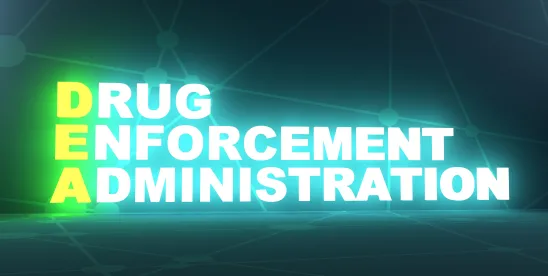On August 11, 2025, the U.S. Drug Enforcement Administration officially transmitted a request to the Department of Health and Human Services to loosen the federal restriction on psilocybin, seeking to move one of the better-known psychedelics from Schedule I to Schedule II under the Controlled Substances Act. The petition was submitted by a familiar face to Budding Trends readers, Dr. Sunil Aggarwal. This marks a big step in Aggarwal’s years-long legal battle, which I’ve found myself keeping close tabs on.
One Step: Rescheduling Psilocybin
As a reminder, back when Aggarwal originally petitioned the DEA to reschedule psilocybin, “the DEA denied the petition.” On appeal, “[t]he Ninth Circuit Court of Appeals in Aggarwal v. U.S. DEA directed the [DEA] to reconsider its decision not to transfer psilocybin from Schedule I to Schedule II”.
Two Step: The Right to Try Act
Aggarwal also pursued a separate approach via the Right to Try Act. We explained those efforts here:
The DEA said no dice and clung tight to the CSA. In so doing, the DEA made a few things clear:
- “Practitioners who seek to dispense or possess [S]chedule I controlled substances must be properly registered as an approved researcher in accordance with the CSA and its implementing regulations.”
- The RTT Act does “not provide any exemptions from the CSA or its implementing regulations.”
- The RTT Act does “not give the DEA authority to waive CSA requirements.”
Doubling down, the DEA also declined Aggarwal’s request to initiate rulemaking to exempt him from the CSA’s registration requirement. The DEA provided the following as its reasoning:
- The DEA could not fully assess Aggarwal’s proposal because it was lacking in detail.
- Aggarwal’s desire to administer psilocybin to patients was not consistent with public health and safety. In making this particular finding, the DEA relied heavily on Congress’ determinations in designating psilocybin as a Schedule I drug that it has a high potential for abuse, no currently accepted medicinal use in treatment in the United States, and a lack of accepted safety for use under medical supervision.
- Aggarwal’s cited historical scenarios involving Schedule I controlled substances — including marijuana — were not persuasive.
The Ninth Circuit found in favor of the DEA, ruling that the DEA’s reasoning in blocking Aggarwal’s access to the DEA was not arbitrary and capricious. While the Ninth Circuit didn’t declare the following reasoning the rule of land even within the Ninth Circuit, it did make clear that the DEA’s reliance on this reasoning is not arbitrary and capricious:
- “The CSA and FDCA together govern access to controlled substances for medicinal purpose.”
- “Although the RTT Act itself does not require FDA approval for eligible patients to access eligible investigational drugs, it does not exempt such drugs from the FDA’s Attorney-General-delegated oversight pursuant to the CSA.” “So DEA’s continued enforcement of the CSA’s registration requirement does not affect, modify, repeal, or supersede the FDCA as amended by the RTT Act.”
- The Ninth Circuit did not reject the DEA’s reliance on Congress’ determination, as codified in the CSA, that psilocybin has a high potential for abuse, no currently accepted medicinal use in treatment in the United States, and a lack of accepted safety for use under medical supervision.
Let Me See You One, Two Step
In what may feel like a one, two step dance of one step forward and two steps back, it seems Aggarwal may actually be making some progress now towards rescheduling.
In July, the DEA said that “it had the necessary material to seek a medical and scientific analysis and scheduling recommendation from HHS,” and has not sent over the petition to HHS.
So, what happens next? The HHS evaluates Aggarwal’s petition and makes a recommendation to the DEA. The DEA will be bound by the HHS’s scientific findings but can undertake its own investigation into psilocybin’s safety risks. Lest we get ahead of ourselves, the determination of whether to submit a notice of proposed rulemaking to reschedule psilocybin lies with the DEA.
Aggarwal’s attorneys are optimistic, stating “[g]iven the Breakthrough Therapy designations previously granted psilocybin by FDA, as well as the abundant clinical trial results supporting rescheduling, HHS and FDA are in position to quickly provide DEA an evaluation and scheduling recommendation before sending the matter back to DEA to begin the formal rulemaking process required to reschedule.”
It remains to be seen how the DEA will weigh the positive clinical trials and studies and the FDA’s designation of psilocybin as a “breakthrough therapy” against potentially preconceived notions or evidence (depending on who you ask) that psilocybin poses some safety threat.





 />i
/>i

